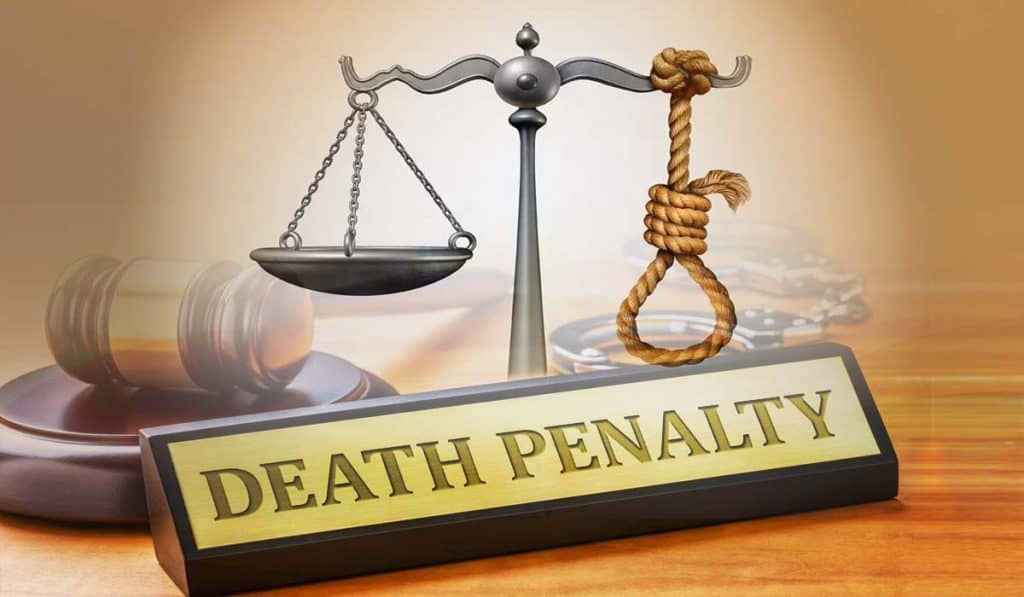
Greater Caribbean for Life (GCL) rejects any call made to utilise the death penalty
The use of the death penalty has been a controversial topic for many years, and the recent call by a section of the TT Business Community for the resumption of hanging in Trinidad and Tobago has sparked widespread debate and concern.
We, as a society, must reject this call for the use of the death penalty as a means of promoting justice.
The death penalty is a cruel, inhumane, and ineffective form of punishment that has no place in a civilised society such as our own!
Leela Ramdeen, GCL’s Chair, says: “There is no evidence that the death penalty has any unique deterrent effect on serious crime. Research on this matter has revealed that the certainty of being caught, arrested and convicted within a reasonable time are more likely to act as a deterrent. Frank Friel, Former Head of Organized Crime Homicide Task Force, Philadelphia, rightly says: ‘The death penalty does little to prevent crime. It’s the fear of apprehension and the likely prospect of swift and certain punishment that provides the largest deterrent to crime.’ I recall that at the opening of the Law Term on 16 September 2015, TT’s Chief Justice, Mr Justice Ivor Archie O.R.T.T., said: “… Common sense tells me that by itself the death penalty is not the solution. Apart from the dubiousness of its value as a deterrent.”
The last time the death penalty was carried out in Trinidad and Tobago was in 1999. Crime statistics from 1999 going forward show an increase in violent crime (namely, murders) in Trinidad and Tobago. It is plain to see that the evidence only highlights its ineffectiveness.
The Privy Council ruled in Pratt and Morgan (1993), that a period of more than five years’ delay in carrying out a death sentence after conviction, constitutes cruel and inhuman punishment. Since then, in a number of cases, the Privy Council has raised the bar higher and higher, making it virtually impossible to carry out the death penalty in our region.
There are more than 1,200 persons waiting on Remand in TT for their murder trials. And remember, the death penalty does not address the increased spate of robberies, burglaries, home invasions and other violent crimes that do not result in murder.
GCL looks forward to the outcome of the Caricom symposium titled: Violence as a Public Health issue: The crime challenge, scheduled to take place in TT on Monday 17 and Tues 18 April, 2023. GCL agrees with the view expressed by Dr Amery Browne, TT’s Minister of Foreign and Caricom Affairs, that this symposium is an important step toward finding solutions to address crime on all fronts in the region – solutions, he says, that include “evidence-based strategies and interventions that involve the widest range of stakeholders in our societies.”
The causes of crime are complex and multi-faceted. Inter alia, they include poverty, social exclusion, corruption, deficiencies in our judicial and education systems, and in other key institutions in TT, the breakdown of the family, male underachievement, the prevalence of drugs, guns, gangs, and so on. In the face of these social ills, TT, and indeed, our Caricom neighbours, must ensure that our approach to crime prevention and crime reduction is multi-faceted and coordinated.
There is an urgent need for a robust, comprehensive, data-driven crime plan that includes evidence-based initiatives that address the root causes of crime and provide opportunities for individuals to turn their lives around or never resort to interacting with criminal elements or turning to crime in the first place.
Khaleem Ali, GCL’s Executive Member, says: “The focus for approaching crime and violence in the Caribbean should be on retooling and adopting more modern approaches to policing, crime fighting and other deterrents with emphasis on: proper border control to limit the chances of drugs and guns from entering our current porous borders, and cleaning up the judicial backlog to promote meaningful justice whereby persons are actually caught, convicted and rehabilitated. Holding a “big stick” over the criminal element does NOTHING to actually instill trust in the minds of citizens when our detection rate remains abysmally low. It is a mere band-aid which cannot begin to control the blood flow. Furthermore, the death penalty has been shown to disproportionately affect marginalised communities and those without access to effective legal representation, namely impoverished persons. This is unacceptable and goes against the very principles of justice and fairness.”
As a society, we must prioritise the rehabilitation and reintegration of individuals who have committed crimes, rather than resorting to the barbaric practice of execution to deter it.
We must invest in our justice system to ensure that it is fair and equitable for all. We must focus on the root causes of crime. Only then can we truly address the issues that encourage and foster a culture of criminality.
The Greater Caribbean for Life rejects any call made to utilise the death penalty and calls on the government of Trinidad and Tobago to direct its attention to evidence-based, data-driven solutions to effectively combat crime and balance it with the interests of justice.
Greater Caribbean for Life (GCL) is an independent, not-for-profit civil society organisation, incorporated in 2014. Our entity is composed by 70 members (individuals and organisation) from 18 countries of the Caribbean.
GCL’s main objective is to campaign for and work towards the permanent abolition of the death penalty in the Greater Caribbean and to support Caribbean abolitionist activists and organizations in this region.
Advertise with the mоѕt vіѕіtеd nеwѕ ѕіtе іn Antigua!
We offer fully customizable and flexible digital marketing packages.
Contact us at [email protected]

















Waton killings of any kind is inhumane, conversely, when an individual decides to pull the trigger or stab someone to death is incomprehensible and has no place in a civil society. If a referendum was to be called for the return of hanging, or lethal injection I would not hesitate to sign in favour.
Senseless killings has escalated out of proportion because killers are aware that the penal system is soft and weak, but I am very convinced that hanging or lethal injection would curb gun an knife crime.
I totally agree. I realize however it’s mentioned, certainty of been caught and arrested within reasonable time, serves as a deterrent. How many times crimes goes unsolved? Cases go cold, inexperience within the forensics / justice / pathology system etc in itself is madness. I understand the justice system in that regard been fearful/ mindful that an innocent person can be put to death, considering the above challenges. He mentioned about other crimes that don’t result to murder. What happen to harsher punishments. Rape: Public viewing, castration, and lengthier sentencing. Robberies: Longer sentencing, make work available in the prison that benefits the community, whether making desk/ benches for schools, etc and make the prisoner replay from his earnings back to the community. Just saying
Why is deterrent always a defence against the death penalty? How is it that we have never heard that jail time is not a deterrent to Robbery so need to stop sending people to jail for it? The entire argument against the death penalty a pure hypocrisy!!!!!
Murdering babies should be an automated death sentence.
Recently in the UK, a 10 month old baby was killed by the parents/guardians and virtually every bone in that poor defenseless child’s body was broken accept for an arm and the skull. Horrific!
Yet, the do-gooders would never call for the death penalty in these type of heinous cases – the world’s gone mad!
Please explain how we can achieve “the certainty of being caught, arrested and convicted within a reasonable time”
Liberal sympathiser who are opposing the death sentence, obviously does not know about the traumas resulting from fatal killings.
However, for those individuals who have lost love ones at the hands of individuals who recklessly take a life perpetually live with the nightmare of lost.
The murderer, on the other hand, retained life with the realisation of release and can enjoy life. How is that justified.
Civil society, should stopped allowing recklessly killings that has blighted our shores and signal to those individuals who insist on living by the sword should expect nothing less than dying by the sword.
When the authorities start hanging I am sure you would see death rates going down. Kill and be killed simple
@Saying the same.
Absolutely correct. Capital punishment by hanging or by lethal injection would reduce the level of murders and those who regard other people’s lives as waste paper would think long and hard about committing murder. There’s too much bleeding heart rubbish spoken against capital punishment. Bring it back or to be more accurate, reintroduce it as soon as possible as it is still on the statue books. It’s just not been implemented.
The death penalty also serves to give the family of the victim closure. I am of the opinion that for the most part the anti-death penalty proponents have NOT had one of their loved ones brutally murdered and therefore cannot or do not wish to identify with the mental anguish and lack of closure that the loved ones experience and have to live with for the rest of their lives…not least of all paying taxes to feed and house murderers living in jail! Forgiveness can be a good thing but NOT to the extent of heinous murder…Bring back the death penalty.
Comments are closed.